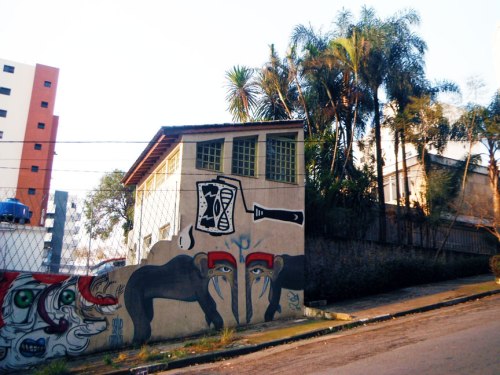Nivea has been doing a concert series every year where they have a popular artist pay tribute to the great Brazilian artists and give free shows around the country. This year, Ivete Sangalo (who I’ve written about before) and hip hop artist Criolo teamed up to cover soul legend Tim Maia.
Over the past couple of years, I’ve come to learn about Tim Maia. He’s a difficult figure to miss — his music is ubiquitous in commercials, radio, weekend barbecues, other artists’ set lists. Just like every American knows at least a couple of Michael Jackson songs, every Brazilian can sing a few of Tim Maia’s hits.
He’s an artist with an interesting history. (Wax Poetics published an extensive piece on him a few years back.) He was a rather intense, hard-partying musician who brought black American soul music to Brazil after traveling to the U.S. One of my favorite songs of his, Bom Senso, I thought was a deeply motivating song about the struggles he had faced and overcome until I discovered later he wrote it while immersed in a cult. I realized that in the voiceover parts, which I had previously ignored, he was telling the listener to read Universo em Desencanto, the cult’s holy book. (Fun fact: he sent out copies to a number of famous musicians. John Lennon wrote him back: “Dear freak, I don’t understand Portuguese. What about LISTEN to this photo?” and enclosed a naked picture of himself.)
Going back to the concert, I was pleasantly surprised at the number of songs I recognized. The crowd was huge (nearing 180 thousand) and the energy from both the people and band was infectious. However as Criolo started a song and a woman gasped, “Aiii!” with delight and shock that he would dare attempt this musical gem (unfamiliar to me), I realized a disconnect I had from the rest. While for the Brazilian crowd, which ranged from old to young, this music made up the soundtrack of their culture, this was relatively new music for me. As much as I can sing every song, read up on the references, go down the YouTube rabbit hole with old videos, it’s not going to resonate with me the way it will with others. It’s simply not a part of my cultural history. The music you hear growing up, whether you enjoy it or not, has a special significance that later music doesn’t. It’s linked to memories, your formative years, and it will always sound different than something you discovered as an adult.
Don’t get me wrong, I had an incredible time at the show. I simply realized that permeating another culture only goes so far. Although we all squealed like children when the fireworks went off in the end.




